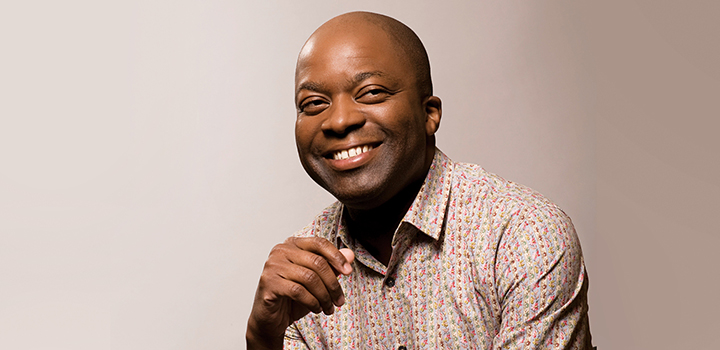2018 could be the year South Africa makes a comeback

South Africa enters 2018 buoyed by the election of Cyril Ramaphosa as the new president of the ANC – but significant risks remain as the party faithful has handed him a radical, populist “to do” list. Popular political commentator, Justice Malala assesses the year ahead.
The year couldn't have started on a better footing: positive political sentiment, a firming rand, a booming Joburg Stock Exchange and commodity prices that have a hint of performances last seen in the profitable early 2000s. It was a continuation of the "Cyril Ramaphosa rally" that started with his election in late December 2017.
Reality, however, now sets in. Can Ramaphosa really turn around a divided and somewhat populist ANC quickly and put his stamp on the economy? With election campaigns due to start for the national elections in May 2019, political noise in South Africa will increase this year. The key initial risk, however, is the jostling around President Zuma and his future. We expect Ramaphosa and the ANC’s new national leadership to remove him this year - this is a matter of when rather than if.
Implications of a Zuma departure
The process may be fraught. Initially there will be blowback from Zuma and his supporters. Handled badly, this move could lead to instability both within the ANC and government. Zuma’s departure will also trigger a Cabinet reshuffle with implications for the key portfolio of finance minister. Focus will increasingly turn towards the government’s fiscal consolidation plans as populist resolutions for the government to fund free higher education, nationalise the Reserve Bank and deliver on a resolution to “expropriate land without compensation” begin to percolate through the government system and national consciousness. Who will be the new finance minister and will they have the credibility to navigate this minefield?
After years of hesitation, and given government’s tattered finances, it is almost inevitable that there will be increases in personal and corporate taxes in the finance minister’s February 21 Budget Speech. Given dire revenue under-collection from the SA Revenue Services, even the politically risky Value-Added Tax increase is a possibility. Whatever the configuration, tax hikes are back on the table.
Ramaphosa's challenges in 2018
The ANC's deep divisions will persist for at least the next six months as the battles for leadership in the run-up to the December 2017 conference shake themselves out of the system. This means that the overarching political theme for this year will be Ramaphosa and the challenges he faces:
- Can he unite the nation behind a new vision for SA?
- Can he swiftly put his stamp on the party and take decisive action on corruption, state capture, rebuilding destroyed institutions such as the SA Revenue Services, the Hawks and others while rebuilding business confidence?
My view is that Ramaphosa should not be underestimated. The astute strategist has in the past used very low odds to take on Anglo American (in the 1980s as a trade unionist), the apartheid government (as a negotiator for the ANC) and in the 1990s (as a businessman) to succeed. Ramaphosa has drive and ambition. The past is an indicator that he can succeed, but his actions this year will be crucial.
Key risks in the year ahead
These are some of the key risk areas the new leader and SA face in 2018:
- The Zuma question: The content and timing of the Zuma exit plan is crucial. Zuma's peaceful departure would cheer the markets.
- The Economic and Land questions: The Ramaphosa election was also about turning around a moribund economy. He now has the tough job of reassuring investors that populist resolutions on the economy by the ANC do not mean anything more than political noise to counter the radical Economic Freedom fighters of Julius Malema. This will have an impact on investor confidence.
- Independent state institutions: Restoration of the integrity of the National Prosecuting Authority, the Hawks, the South African Revenue Services and others will be a signal of what lies ahead.
- National Treasury: This was one of the most admired institutions of the SA state. Today its best brains are rushing for the door and it is ridiculed. To avoid further credit ratings downgrades this institution needs to be restored to its former glory.
Key players in SA politics this year will include civil society organisations and the political opposition. Civil society bodies such as Business Leadership South Africa and others may be buoyed by the Ramaphosa election, but the battle to restore the integrity of state institutions remains vital. A weakening of civil society organisations would mark a huge negative for the country.
Leaders of South African opposition parties now face a conundrum. The election of Cyril Ramaphosa as ANC president, and the exit of Zuma from the political centre stage, removes one of their main campaign points from the national discourse. How they regroup will be crucial for their survival.
Positive outlook for 2018
My overall view is that a Ramaphosa victory in the ANC has the potential to put SA back on the path to recovery. It means the return of principled politics to centre stage. It is a positive development that may see 2018 end far more buoyantly for SA than the past ten lethargic years.
Justice Malala is a political commentator, newspaper columnist and author of the bestseller We Have Now Begun Our Descent.
Disclaimer:
The views expressed in this article are those of the author and may not necessarily represent those of Discovery Invest. This does not constitute financial advice.
Discovery Life Investment Services Pty (Ltd), branded as Discovery Invest, is an authorised financial services provider. Registration number 2007/005969/07.
Subscribe to our Invest Insights newsletter
Receive bi-annual updates on market insights, the economy and financial planning.